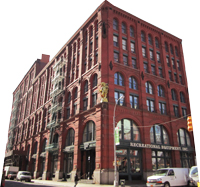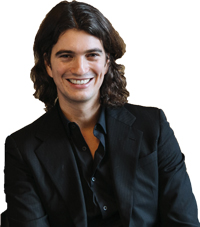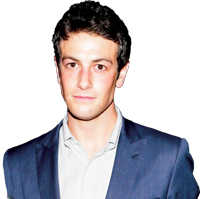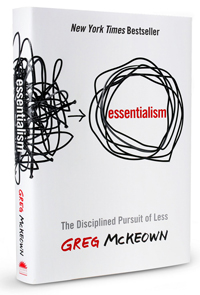Ryan Williams is the 29-year-old CEO of real estate finance startup Cadre, which he founded with Josh and Jared Kushner in late 2014. The 45-person company, which connects institutional investors with real estate deals that it sources, has raised $68 million in corporate funding and closed nearly $1 billion in transactions to date, according to Williams. He grew up in Baton Rouge, Louisiana, and graduated from Harvard University in 2010. As a student, he raised capital to buy foreclosed single-family homes in Atlanta. He then worked in tech banking at Goldman Sachs and handled investments at Blackstone Group before forming Cadre. In January, former Vornado Realty Trust CEO Michael Fascitelli took over Cadre’s investment committee. That same month, The Real Deal reported that George Soros has been quietly backing Cadre with a $250 million credit line.
6 a.m. I wake up in my one-bedroom rental at 300 Mercer Street in Greenwich Village. The first thing I do is check the news. I look at headlines — anything I might want to know starting my day.
6:30 a.m. I do 150 push-ups and 150 sit-ups in a row. Then I take a 30-minute run around NYU’s campus. I make sure to have not just a strong mental capacity, but also physical. Today, there’s this element of multidimensionality, making sure you’re well-rounded. Often, that results in not doing anything really, really well. Picking a couple of horses and specializing will often lead to outsized returns. That’s the mantra I’ve taken.
7:45 a.m. I shower and check my email at my apartment.

8:30 a.m. I arrive at the office at the Puck Building in Soho. I eat breakfast — egg whites, turkey bacon, yogurt and water — at my desk. Keeping things consistent is key for me. The more time I can spend on building the business, the better.
8:45 a.m. Meetings, probably the most intensive part of my day, start. On average — I actually counted — I have 18 to 19 meetings a day, pretty much back to back. Those meetings can range from a large institutional investor looking to invest in deals to Wells Fargo discussing how they can strategically partner with us.
10 a.m. I’m holding in–office meetings with my management team, usually the heads of our acquisitions and our client relations teams.

12 p.m. I take a five-minute break for lunch. My assistant brings me a salad. I tried doing Soylent 2.0 for about a week. That didn’t work out too well because it didn’t give me enough fuel for the day, so I went back to regular food. I didn’t fully appreciate how important it is to eat and still maintain energy until I had a serious meeting with one of my advisers and friends, WeWork’s Adam Neumann. He told me I wouldn’t be able to do anything I wanted to unless I had energy and ate. He said he was going to force me if I didn’t do it. Since then, I’ve tried to make sure I have lunch. I also drink water or ginger ale throughout the day.
12:05 p.m. I tend to have four to five calls a day with advisers, speaking with folks like Jon Winkelried, co-CEO of TPG, and SL Green’s Marc Holliday and Andrew Matthias. Andrew loves to give us feedback on how we can improve the user experience.
3 p.m. I’ve been meeting with Mike Fascitelli, the new chairman of our investment committee. The other day, we met for about five hours, talking about long-term direction and potential strategic investors. He also made a few jokes, but I can’t share any. Mike would kill me because then he can’t use them again.

4:30 p.m. Every day, I speak with Josh Kushner. Josh, an investor through Thrive Capital, brings his tech domain expertise. He played an incredible role early on helping to seed us and give us the capital to build the business. Josh and Jared are both like brothers to me. Jared was an adviser and not involved operationally day to day. He was always a great sounding board for us.
7 p.m. I often do dinners with investors who are looking to close a deal or pitch job candidates. Sant Ambroeus is one of my favorite spots – I get the penne all’arrabbiata. I end my business day by talking about strategy with folks like Joel Cutler of General Catalyst.

9 p.m. I spend the next two hours on emails in the office. I check my weekly priorities list, also known as my OKRs — Objectives and Key Results — and make sure I’m tracking my goals accurately. If by the end of the day I have not made progress toward that goal, I’ll figure out how to do that. It’s a good way to assess the day and motivate yourself.
11:30 p.m. I check the news again, still in the office, and then I check email again before heading home. I believe in working smart, not just hard. Work-life balance is important, but if you’re working the right way, your work and your life can in many ways be complementary.

1 a.m. I walk home — it only takes about five minutes. It’s nice to have the opportunity to settle down and think. The next 20 to 30 minutes are carved out for reading. I just read a really good book called “Essentialism,” which is about doing only what’s critical and saying no. I also reread “Man’s Search for Meaning” recently. I find that reading helps level-set me for the next day. I don’t watch TV. Except if it’s an LSU football game.
1:30 a.m. I lay my clothes out for the morning. I don’t spend a lot of time thinking about what I’m going to wear, which some people think is a problem, but I don’t care. Instead, when I go to sleep, I think: How can I ensure we build the world’s most impactful marketplace for alternative assets?
